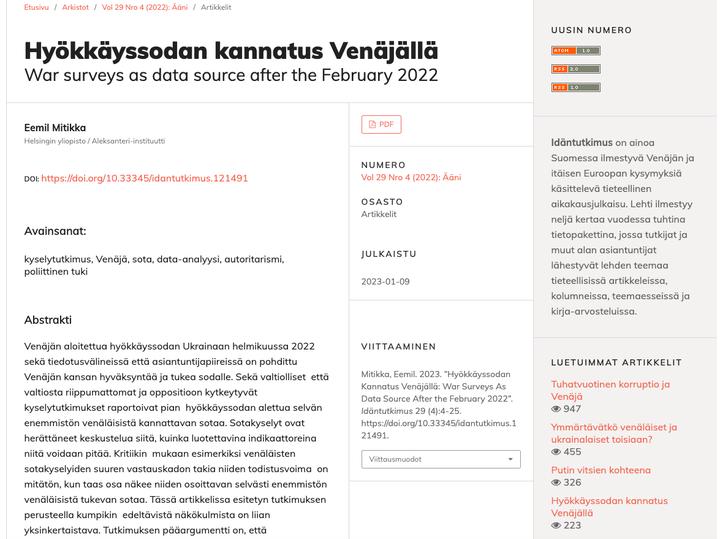
Abstract
After Russia’s full-scale invasion of Ukraine in February 2022, the media and experts have been considering the approval and support for the war among the Russian population. Governmental, state-independent and oppositional surveys reported quickly that the clear majority of Russians support the war. These war surveys have raised discussion about how reliable they can be considered as indicators of war support. For example, according to some critiques, the high non-response in these surveys suggests that their value as evidence is negligible, while some see that they clearly show how the majority of Russians support the war. The research conducted for this article presents that both of the aforementioned viewpoints are too simplistic. The main argument of this research is that, in spite of their limitations, it is possible to draw important and politically relevant insights from the Russian war surveys. However, because of the high non-response rates (low response and completion rates), it is more relevant to analyse the relationships between the variables affecting the war support, than to use these surveys as indicators of “overall support” for the war. This article examines in particular how sociodemographic background factors, media consumption and economic attitudes relate to war support in Russia. Although the examination is limited to these variables, the approach of the research can be applied to other kinds of research questions in analysing war surveys in future.